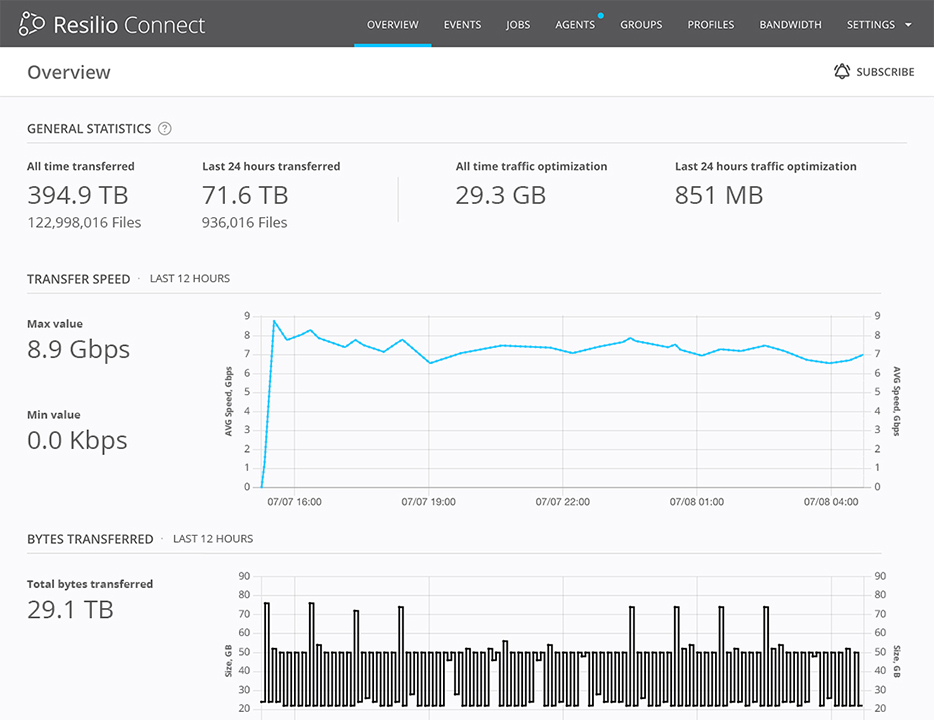
Sunrise Productions improves global partner productivity with Resilio Platform
Introduction
Sunrise Productions is an animation studio headquartered in Cape Town, South Africa. Although it earned a place in history for creating Africa's first-ever animated feature film, Sunrise Productions is best known today as the creative force behind the award-winning kids series Jungle Beat and its spinoff, Munki and Trunk. Together those two shows have been broadcast in over 180 countries. Millions of viewers subscribe to their videos on YouTube and the Jungle Beat audience is about to expand even further when the feature-length film hits theaters in 2020.
"We are a collaborative studio who work extensively with international partners and in particular studios in Mauritius, Singapore and Indonesia," says Sunrise Productions Head of Technology, Luke Marchant. “In its effort to exchange large amounts of files between all of these locations, the studio experimented with solutions like Aspera and Media Cloud. Ultimately, it chose Resilio Platform for its speed, flexibility and cost-effectiveness.”
Challenges
#1: Maximizing Speed and Minimizing Latency in a Global Workflow
"Originally, when we first partnered with the Indonesian studio, we tried to move files to them. Unfortunately, when it comes to international routing, we have to go via America or Europe into Asia, and both of those paths are just as bad as the other," says Marchant.
"The latency between us and Indonesia is in the region of 400 to 600 milliseconds depending on what the international routing looks like that day." Along with the poor latency, typical transfer speeds were as low as 2 or 3Mbps. That made sending large datasets of computer-generated textures, models and high-resolution renders "close to impossible." Ideally, Sunrise Productions needed a UDP-based file-transfer solution that could overcome these limitations.
That solution would have to sync several terabytes of data per month at high speed and keep hundreds of thousands of files in parity across multiple geographically distributed locations. The other crucial requirement? It had to make financial sense. Many file-transfer solutions used in the media industry charge a Hollywood premium. They exceed the budgets of small and mid-sized studios.
#2: Customizing and Automating a Flexible Sync Platform
Sunrise Productions currently uses local Linux-based Supermicro servers with storage in a JBOD configuration. Some sites have up to 300TB of total capacity.
"We obviously rely heavily on local data," says Marchant, "but we can't send all that data. We've got to be clever about what data gets processed and sent to international partners. It requires a lot of customization on the server side." That customization carries over to project workflows.
Individual sync jobs have to adapt to changing sequences and datasets without demanding a lot of time-consuming manual intervention. But that's only part of the flexibility that Sunrise Productions needs. As the studio begins its migration to next-gen LumaForge Jellyfish servers, any sync platform has to migrate seamlessly along with it—while also accommodating media-optimized configurations.
Solution
Resilio Platform provided the speed, the customization and, most importantly, the price tag that Sunrise Productions was hoping to find. It's since become central—even vital—to the studio's operations. Using Resilio Platform's powerful API, the studio can easily break jobs down into specific sequences and distribute them seamlessly to its global partners.
"It saves us both time and energy, being able to automate the sending and receiving of data from a remote platform without us having to intervene in any way. New data arrives and is processed, while other data is shifted to be sent to multiple partners. This way, we can ensure all our local and partner data is in parity." Marchant says. "The fact that we can actually saturate our line speed to send data across the world is a huge win for us. I don't think we would have been able to finish a lot of our feature film or any of our other productions on time if we had to send in any other manner. Plus, what Resilio Platform costs compared to some of its competitors, it makes it financially viable for us as well."
And even while Resilio Platform is handling the studio's migration to LumaForge Jellyfish servers with the expected ease, Sunrise Productions is discovering new advantages to its primary sync platform. Ad hoc remote workers, for example, are actually helping to accelerate transfer speeds because of Resilio's roots in BitTorrent.
"We've used Resilio to selectively send files to, say, a rigging artist based in America. That artist then becomes a node. As we build up and sync data to nodes all over the world, the more nodes we spin up, the better our transfer speeds. We're able to have people downloading at full speed and then sending that data back to the team working on rigs, models or textures. We've got our whole remote pipeline built around using Resilio Platform."
Impact
Marchant maintains that Resilio Platform has been absolutely key to the overall success of Sunrise Productions. In fact, "the picture without Resilio is quite primitive," he says. File transfer would involve either establishing a VPN connection and a slow data sync between two sites or shipping physical hard drives between studios.
""There isn't really another cost-effective way for us to do what we need to do. If we didn't have Resilio Platform, it would take a lot of time. It would take a lot of energy to make sure things are in parity. It would take a lot of IT overhead to make sure things don't break. It would negatively change the viability of our business."– Luke Marchant, Sunrise Productions' Head of Technology
Industry
Media, CGI










